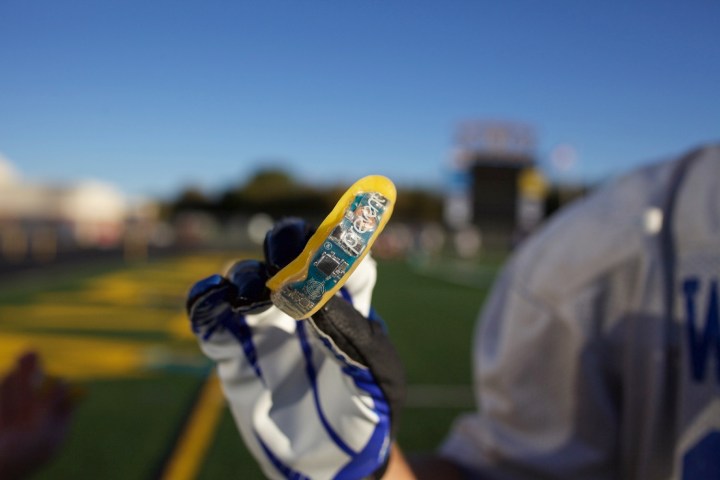
That’s where a smart piece of equipment developed by the Minneapolis-based startup Prevent Biometrics wants to help. The firm has developed a mouth guard able to pair with a mobile app, to inform players of head trauma received during games.
This is carried out in real time, with the monitor able to record information related to the direction, force, and location of impact. When the impact exceeds a predetermined threshold, a light on the monitor turns red, and trainers or caregivers are alerted so the player can be removed from the game to be assessed for a possible concussion.
“What makes this product so exciting is that there really isn’t a product available that can measure these impacts so accurately and in real time,” co-founder and CEO Steve Washburn told Digital Trends. “In fact, the product has a plus or minus five percent margin of error, which [makes it] the only product to meet the NFL’s validation standard for head impacts.”
The smart mouth guard was developed in collaboration with Cleveland Clinic neurosurgeons and engineers over a period of six years. Along the way, Prevent Biometrics was the sub-awardee of a $4.5 million grant from the U.S. Department of Defense.

“In the near future, we want use the head impact monitor to help reduce the number of undiagnosed concussions that happen every year,” Washburn continued. “Ultimately, our goal is to use this data to create safer sports by improving sporting equipment and technique, as well as helping to advance concussion protocol and treatment.”
The mouth guard is set to be shown off at January’s Consumer Electronics Show (CES) in Las Vegas. After that, Washburn said users in six launch markets will be able to get their hands (or, rather, their teeth) on the product in 2017 — with nationwide availability by 2018.


